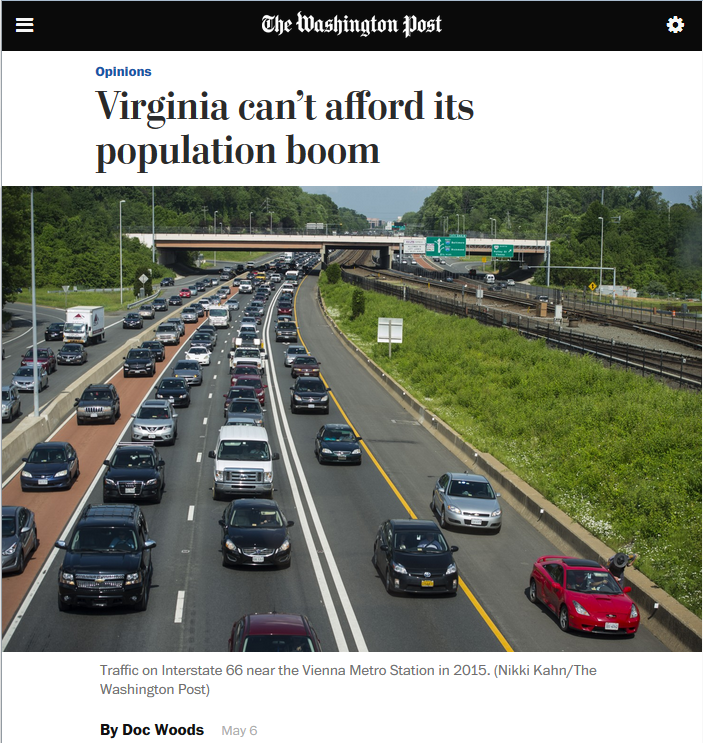PR Firm Says It Ghost-Wrote Thousands of Op-Eds in Major US Papers
- Submitted by: Love Knowledge
- Category: Media
 The Wall Street Journal put Bill Ingram’s name on this op-ed–but a PR firm says it actually wrote it.
The Wall Street Journal put Bill Ingram’s name on this op-ed–but a PR firm says it actually wrote it.
Laura Bentz of Keybridge Communications describes her company as
a boutique PR firm—founded by a former writer for the Wall Street Journal—that specializes in writing and placing op-eds. With some of the country’s most influential trade groups and global corporations as clients, we run many of the major op-ed campaigns in the US. We place roughly 3,000 op-eds per year.
On its website, Keybridge openly claims to be able to “brand a CEO” by putting op-eds into newspapers in “virtually every major city.”
Less openly, Keybridge carefully markets its services with a PDF that names people for whom it claims to have written and placed op-eds.
For a mere $5,000, Keybridge offers this service in the PDF:
First, we write a 500–800 word op-ed. Then we place it in one or more newspapers around the country. If we’re pitching to a national audience, we guarantee that we’ll reach at least 50,000 readers. Includes media monitoring.
The PDF claims credit for and includes full images of op-eds in the following newspapers by these individuals:
- Wall Street Journal, an op-ed by Bill Ingram, vice president of Adobe Analytics and Adobe Social.
- Washington Post, an op-ed by Doc Woods, a member of Virginians for Quality Healthcare.
- Los Angeles Daily News, an op-ed by James G. Nondorf, vice president for enrollment and student advancement at the University of Chicago, and Jarrid J. Whitney, executive director of admissions and financial aid at Cal Tech.
- Newsday, an op-ed by Patricia Morton, Dean and Professor at the University of Utah College of Nursing.
- USA Today, an op-ed by Kevin Chou, CEO of Kabam.
Of course, it goes without saying that organizations and political campaigns and businesses have staff ghost write or draft or assist with op-eds by their figureheads. So this could be described as merely outsourcing that service to a PR firm. But it’s considerably more damaging to public communications than that, I think.
Keybridge says it’s responsible for writing this anti-immigration op-ed and getting it into the Washington Post.
For one thing, there are millions of people with important and new and different things to say who do not have $5,000 to spend on saying it. Read these op-eds in the PDF and see if you can claim they are in the top 1,000 you’ve seen. Is there one among them you’ll have a hard time forgetting?
Additionally, paying $5,000 for this service is not simply paying for research or editing. It’s paying for the unfair advantage of having your op-ed pitched by people who’ve built cozy relationships with op-ed page editors, and who in at least some cases used to be op-ed page editors.
Even worse, it’s paying for the insider skill of churning out or transforming an op-ed into just the sort of familiar, boring, cookie-cutter columns that clutter up the dying institution of the daily, dead-tree, advertising-and-rewritten-government-statement sheets we call major newspapers.
This is why the more stimulating op-eds are often to be found on independent websites.
But to the extent that this service can really reach 50,000 people whom one wouldn’t have otherwise reached, it is part of the corruption of a thoroughly corrupt communications system. It’s part of the rigging of everything that breeds cynicism and resentment.
Do op-ed page editors know that Keybridge pitches op-eds that it claims to have ghost-written? Are they all completely, or only partially, ghost-written? Those might be questions for some future WikiLeaks release.
Meanwhile, here’s a fun fact: Keybridge is a supposedly savvy PR firm in Washington, DC, that bears the name of a bridge named for Francis Scott Key, who owned people as slaves, supported killings of African-Americans, penned an anti-Muslim poem that later became a celebration of killing people escaped from slavery and of a flag surviving a battle that killed human beings during a war that failed to conquer Canada but succeeded in getting the White House burned. That revised poem became the US national anthem. Great image, guys! I’d pay $5,000 for that.
David Swanson is an author, activist, journalist and radio host. He is director of WorldBeyondWar.org and campaign coordinator for RootsAction.org. Swanson’s books include War Is a Lie. He blogs at DavidSwanson.org and WarIsACrime.org (where this post originally appeared). He hosts Talk Nation Radio. He is a 2015 and 2016 Nobel Peace Prize nominee.
Follow him on Twitter: @davidcnswanson and on FaceBook.
Read more http://fair.org/home/pr-firm-says-it-ghost-wrote-thousands-of-op-eds-in-major-us-papers/








Comments (0)